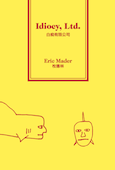Saturday, February 20, 2016
Eugene Vodolazkin and our Spiritual Void
Though Nabokov had high admiration for Andrei Bely’s arid symbolist novel Petersburg, and others have heaped accolades on Bulgakov’s The Master and Margarita, it seems safe to say that the twentieth century never gave us a Russian novelist of the stature of Tolstoy or Dostoyevsky. Perhaps now, in this new century, we have a Russian writer worthy of comparison to these great forebears. I’m thinking of Eugene Vodolazkin, whose Laurus, just out in English last year, is nothing short of breathtaking.
Vodolazkin’s novel narrates the life and struggles of a medieval Russian yurodivy, or Holy Fool, driven to his spiritual calling by a burning need to atone for the death of his childhood love. Having grown up as an apprentice to his grandfather, a respected herbal healer, Laurus practices his trade across the plague-stricken villages of the Russian north and ultimately makes the pilgrimage to the Holy Land in the company of his friend Ambrogio, an Italian visionary subject to piercingly detailed visions of the future and obsessed with discerning the exact date of the end of the world. Vodolazkin, medievalist by profession, brings this ragtag and spirit-haunted world to uncanny life, even as he engages hard philosophical questions about time, history and the nature of the binds that hold us to one another.
But if Laurus strikes with such force, it’s not simply because of the tale being told or the writer’s mastery of his historical subject. Vodolazkin has also mastered late 20th century narrative modes, the approaches to storytelling developed by Garcia Marquez, Borges and others, and here combines them with a deep knowledge of the medieval Christian vision to make this vision gleam for postmodern readers. The result is a kind of literary lightning: a hard-hitting wake-up call for all who’ve succumbed without struggle to the “playful” (read: jaded) sensibility that now dominates our literature. It's a wake-up call delivered with all the more punch because it’s delivered in a narrative idiom more reminiscent of our career literary cynics.
There’s not a hint of cynicism in Vodolazkin however. With Laurus, the writer brilliantly proves that Christian literary prose need not remain faithful to 19th century realist modes, nor need it drift into allegory or fantasy.
I’d go even further. Though he’s sometimes compared to Umberto Eco (just deceased) or the magical realists mentioned above, I'd judge that Vodolazkin has surpassed them, both in artistry and depth. I can’t think of another work since Dante’s Comedy that more powerfully links love for a departed woman with a deep spiritual vision of the universe.
Laurus will hit many who read it as a bombshell, especially those who feel the anomie and pointlessness of our consumerist culture and who yearn for something deeper, wiser, weightier. Vodolazkin’s ideal reader would be the spiritually curious, literate seeker who has so far remained unimpressed by what contemporary organized religion offers, but who nonetheless continues to yearn.
I look forward to Vodolazkin’s next work to appear in English and I thank God we have him.
Eric Mader
Taipei
Thanks to Rod Dreher at The American Conservative for posting a version of these comments on his blog.
Check Laurus at Amazon.com
Subscribe to:
Posts (Atom)


